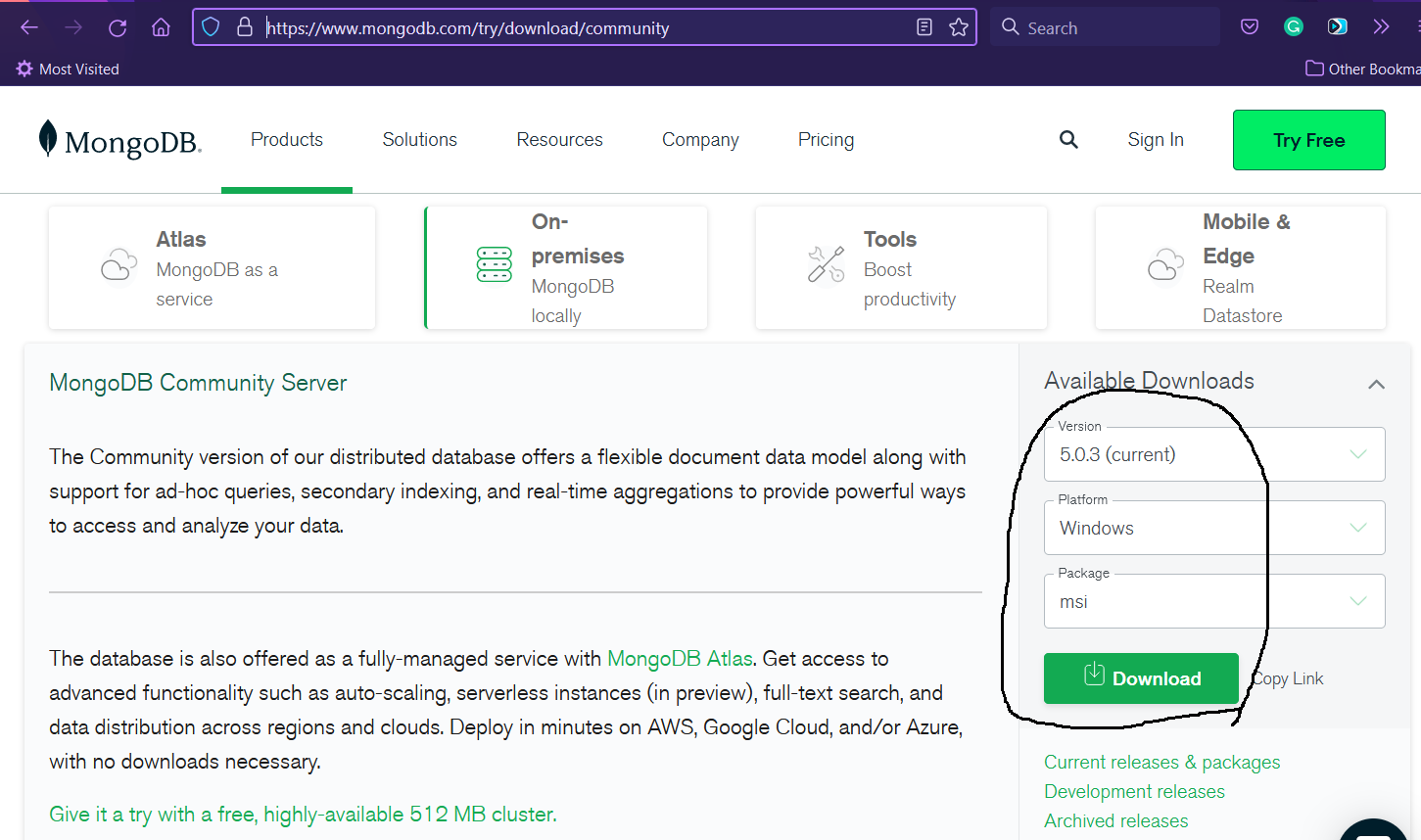

- #HOW TO INSTALL MONGODB AS A SERVICE HOW TO#
- #HOW TO INSTALL MONGODB AS A SERVICE FREE#
- #HOW TO INSTALL MONGODB AS A SERVICE WINDOWS#
Output: :~# mongo -u mongoAdmin -p -authenticationDatabase admin To obtain the most recent version of this software, you must include MongoDB’s dedicated. However, as of this writing, the version of MongoDB available from the default Ubuntu repositories is 3.6, while the latest stable release is 4.4. mongo -u mongoAdmin -p -authenticationDatabase admin Ubuntu’s official package repositories include a stable version of MongoDB. To test the changes, access the mongo shell using the created administrative user. To verify whether the installation has been completed successfully by running the following command. Loaded: loaded (/lib/systemd/system/rvice enabl>Īctive: active (running) since Mon 21:02:08 UT>

Now, check the status of the MongoDB service. Start the MongoDB service and enable it to start automatically after rebooting the system. Install MongoDB with the following command. Output: :~# add-apt-repository 'deb focal/mongodb-org/5.0 multiverse' add-apt-repository 'deb focal/mongodb-org/5.0 multiverse'
#HOW TO INSTALL MONGODB AS A SERVICE WINDOWS#
Figure : MongoDB is installed as Windows Service. It means, install a MongoDB, which point to c:\mymongodb data directory, log output to c:\mymongodb\logs.txt, and a Windows service named MongoDB. Output: root :~# wget -qO - | sudo apt-key add -Īdding the MongoDB repository with the following command. Service can be started from the command line via 'net start 'MongoDB''. Install the dependenciesĪpt install dirmngr gnupg apt-transport-https ca-certificates software-properties-common Add MongoDB GPG Keyĭownload and add the MongoDB GPG key with the following command wget -qO - | sudo apt-key add. Instead of using tables and rows as in the traditional relational databases. and MongoDB is a document-oriented NoSQL database used for high volume data storage. If it is disabled or not in the list, enable it: > sudo systemctl enable mongodb.MongoDB is an open-source document database used in many modern web applications. Verify in the list if the service is enabled or disabled using the command below: > systemctl list-unit-files -type=service

I uninstalled the official meta-package (mongodb-org) v3.2, then I installed the meta-package (mongodb) v2.6 from Ubuntu repository: > sudo apt-get remove mongodb-orgĬreate the service config file as shown below: > cd /lib/systemd/systemĭescription=An object/document-oriented databaseĮxecStart=/usr/bin/mongod -quiet -config /etc/nf I managed start the MongoDB service with SystemD on boot:
#HOW TO INSTALL MONGODB AS A SERVICE HOW TO#
Someone knows how to start the MongoDB with SystemD? > echo "deb trusty/mongodb-org/3.2 multiverse" | sudo tee /etc/apt//mongodb-org-3.2.list create the config file in mongodb installation. > sudo apt-key adv -keyserver hkp://:80 -recv EA312927 How to Run MongoDB as Windows Service Start CMD, Command Prompt as Administrator and create following directories, if you haven’t created already. I'm running the official MongoDB 3.2 Community Edition (mongodb-org) from not the MongoDB 2.6 meta-package (mongodb) from Ubuntu repository. Loaded: not-found (Reason: No such file or directory)įailed to start rvice: Unit rvice failed to load: No such file or directory. sudo dnf install mongodb-org < snipped> Installed: sudo systemctl status mongod rvice. When I read the service status or try start it, show the message "failed to load": > systemctl status mongod So I can't start the MongoDB service on boot. dnf install mongodb mongodb-server service mongod start. systemctl start mongod systemctl enable mongod.
#HOW TO INSTALL MONGODB AS A SERVICE FREE#
However I'm using Ubuntu 15.10 with the Linux standard SystemD init process. MongoDB is a free and open source database and uses a document-oriented data model. Start the MongoDB service and enable it to start automatically after rebooting the system. The last is Ubuntu 14.04 LTS, where the init process is managed by Upstart proprietary of Canonical. MongoDB just supports versions of Ubuntu Long Term Support (LTS).


 0 kommentar(er)
0 kommentar(er)
